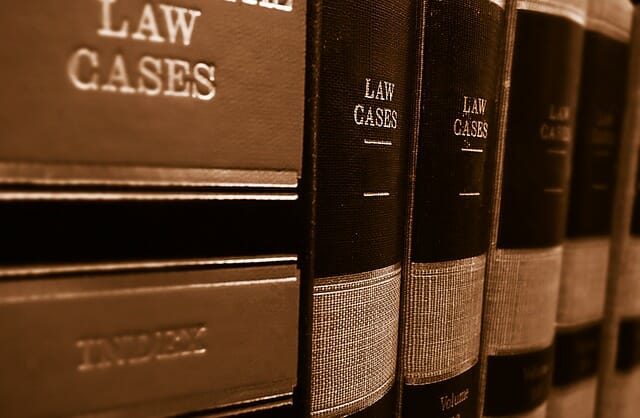There are many cases of tenants who have experienced mistreatment from their landlords and don’t know where to turn.
The good news is you don’t have to put up with a bad landlord. There are steps you can take to remedy the situation no matter how bad it may seem. In the following article, we will explore some of the most common challenges that tenants face when dealing with landlords, and how to resolve them. We’ll also share some of the most important landlord-tenant laws you should know.
Table of contents
- Common problems with landlords
- How to deal with a bad landlord
- Filing a complaint
- Landlord-tenant laws you should know
- Tenant rights and obligations
Common problems with landlords
Most landlords make concerted efforts to keep their tenants happy. But there is a small number who neglect their duties and obligations. Here are some of the most common problems that tenants face when dealing with their landlords:
- Unreasonable increase in rent
- Poor or no communication
- Mixed messages
- Failure to respond to emergency issues
- Poor maintenance of the premises (not fixing or replacing broken appliances)
- Entering the unit without lawfully required notice
- Enforcing illegal eviction practices such as forcefully removing tenants from premises
How to deal with a bad landlord
Know your rights
If you didn’t read up on your rights when you signed your lease, now’s the time to do so. Know what your rights are and understand the terms of your lease. When you know these, your landlord won’t be able to hold authority over you or intimidate you. Luckily, we’ve outlined some of the most important landlord-tenant laws for you to know below.
Keep written records
Always keep a copy of the lease handy. When raising complaints or concerns, make sure you have it all in writing. Keep your landlord’s feedback in writing also. Emails are your best bet at cracking this part of insurance. This will give you some legal leverage over any dispute that might get out of hand.
Force their hand
When a landlord is taking their time responding to an emergency, deal with it yourself. But keep all the important documentation as proof. You can also get a tenant attorney to reach out to your landlord. This will force their hand in either reimbursing you or deducting from your rent. Again, read your lease.
Continue your streak as a good tenant
It might be very tempting to skip on rent to give your landlord a taste of their own medicine. But remember the saying “two wrongs don’t make a right.” You don’t want to help your landlord build a credible case against you as a bad tenant.
Request a face-to-face meeting
If enough time passes without getting word from your landlord, ask for a face-to-face meeting. If they agree, and after the meeting takes place, you can follow up with an email highlighting everything that was discussed. This can serve as evidence later on, and keeps both parties on the same page.
Filing a complaint/Reporting your landlord

If the meeting does not resolve the matters between you and your landlord, you can take things further by filing a complaint against them or reaching out to rental dispute organizations.
A complaint against them could motivate your landlord to resolve the issue. You must find the relevant authorities/governing bodies to report the matter to.
Here is where you can go to file a landlord complaint in Canada:
- Ontario
- Alberta
- Quebec
- British Colombia
- Manitoba
- Saskatchewan
- Nova Scotia
- New Brunswick
- Newfoundland and Labrador
- Prince Edward Island
- Northwest Territories
- Nunavut
- Yukon
It’s important to note that Canadian law has two types of lease agreements, written and oral agreements. For obvious reasons, it’s best to use a written agreement. Rental rules differ by province. This means you will need to look up information that pertains specifically to your province or territory.
Landlord-tenant laws you should know

The Residential Tenancies Act sets out the expected standard of conduct between landlords and tenants. A lease under the RTA may be written or verbal. It’s important to know if you have a periodic tenancy or a fixed term tenancy as rights under a periodic tenancy may differ. Under the RTA, landlords have the following rights and obligations:
Access to premises
The landlord should make the property available to the tenant from the move-in date. From then onwards, the landlord isn’t allowed to disturb your enjoyment of the property. If your landlord wants to access the property, they must do so within the precepts of the legislation. This includes giving the tenant a 24-hour notice. In most cases, the landlord may only enter the premises to conduct inspections, repairs, pest control or to show prospective tenants or buyers.
There may be a few exceptions to this rule. If there is an emergency in the unit, then the landlord would likely not be penalized for entering the unit without the tenant’s permission.
Lease agreement
The landlord must provide the tenant with a copy of the lease.
Inspections
The landlord must inspect the property with the tenant prior to moving in and out, and complete an inspection report on both occasions. This is a written report of the state that the property is in during the inspection. The landlord must send a copy of the inspection report to the tenant. A landlord must provide due notice of the inspection dates beforehand, and at two possible times periods. Those times must be during the day, not on religious days or holidays and not on different days.
Security deposit
The landlord cannot ask for a security deposit that exceeds one month’s rent. Tenants mustn’t fall for things like “furniture leases” which is an extra deposit that a landlord may try to squeeze out of you. If the condo or apartment comes with furniture, the landlord must include it in the rent amount. A landlord cannot charge tenants extra on their security deposit for having children or pets.
Furthermore, landlords must deposit the security deposit in an interest bearing account. This account must pay interest to the deposit and must be paid annually to the tenant unless there’s an agreement that the interest be compounded annually be paid out at the end of the lease or tenancy. The tenant must receive the security deposit statements no more than 10 days after moving out.
This law allows landlords to deduct money from the security deposit for damages caused by the tenant or anyone who’s on the property with the tenant’s permission. The landlord may also deduct money from the security deposit for rent that’s owed in accordance with the lease.
The law doesn’t allow the landlord to deduct money from the security deposit for upgrades or for fixing regular wear and tear. This means that tenants don’t have to return the property in the condition they received it, because the law allows for normal wear and tear which happens due to someone living in it.
The landlord cannot charge the tenant for changing locks or carpet cleaning at the end of the tenancy unless the carpet is extremely dirty. The landlord can only make legal deductions from the security deposit once the move-in and move-out inspections have been completed and are in writing.
Increasing rent
The landlord cannot increase rent during a fixed term tenancy. But, they may increase the rent in a monthly periodic tenancy provided proper notice is issued. The notice of rent increase must be dated, signed by the landlord and specify the date at which the increase will take effect. If those requirements are not met, the notice of increase is of no effect and can be ignored. No rent increase can take effect until one year of the tenancy, or 365 days from the start of the tenancy.
The tenant’s rights and obligations
Theses are some of the key rights and tenant obligations listed under the Residential Tenancies Act:
Paying rent
The tenant must pay rent on time. Failure to do so constitutes a serious breach in the lease agreement.
Conduct
Tenants must not interfere with the rights of the landlord or other tenants. You must not endanger other tenants or the landlord or damage the property. The law doesn’t allow tenants to perform any illegal acts or do illegal business activities from the property.
Upkeep
The tenant must keep their property reasonably clean and leave the property in a decent condition at the end of the tenancy.
Inspections
The tenant must inspect the property with the landlord at least one week before moving out and receive an inspection report from the landlord shortly after.
Subletting
This legislation allows tenants to sublet with the landlord’s permission. You cannot sublet if your lease contract doesn’t address this topic.
On a side note, the Public Health Act states that the landlord must ensure the property meets minimum health standards before moving a new tenant in.
Conclusion
When landlord-tenant conflict arises, it’s usually due to poor communication, failure to resolve maintenance issues, or extreme rent increases.
If you’re struggling with such a situation, you can look into filing a complaint with a tenancy dispute organization.
To file a dispute, you first need to know the terms and conditions of your lease and have said disputes on record.
Evidence is important in measuring the validity of your claims. Most importantly, you need to know your rights so you can build a case showing that they have been violated.


